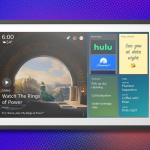Reuters/Rick Wilking
• Mark Cuban sees decentralized autonomous organizations (DAO) as disruptive.
• DA Os run on blockchains, democratize decisions, and use smart contracts.
• Warren Buffett’s Berkshire Hathaway relies on decentralization and autonomy.
• See more stories on Insider’s business page.
Tech billionaire Mark Cuban expects decentralized autonomous organizations (DAOs) to transform how companies are built and run. Warren Buffett’s Berkshire Hathaway embraced decentralization and autonomy decades ago, arguably paving the way for DAOs.
“It’s the ultimate combination of capitalism and progressivism,” Cuban tweeted about DAOs this week. “There are so many features and processes in any given company that can be more efficient and productive using a decentralized, trustless approach.”
“As companies are built on this approach, we will see some incredibly disruptive businesses built,” the “Shark Tank” star, Dallas Mavericks owner, and dogecoin champion added.
Buffett’s company showcases the power of the ideas that underpin DAOs, and it could even be considered the precursor to this new breed of organization.
What is a DAO?
DAOs are digital organizations that provide a fresh way to fund ventures, democratize decisions, and split proceeds. They’re “decentralized” because they’re hosted on a blockchain and all of their stakeholders, not just executives and board members, make decisions. They’re “autonomous” because they employ smart contracts that automatically execute actions when certain conditions are met, without requiring human approval.
Typically, anyone who owns tokens tied to a DAO can vote on proposals, and their votes are weighted based on the number of tokens they hold – similar to the voting rights attached to shares. If a proposal garners enough votes, a smart contract is triggered and the approved action is executed.
“If blockchains, NFTs, smart contracts, DeFi protocols, and DA pps are tools, DAOs are the groups that use them to create new things,” blogger Pa cky McCormick explained in his Not Boring newsletter earlier this year. “If they’re the what, DAOs are the how.”
McCormick also pointed out that Ethereum’s cofounder, Vitalik Buterin, highlighted DAOs as a potential blockchain application in ethereum’s white paper back in 2013.
Berkshire is an analog DOA
The core principles underlying DAOs, decentralization and autonomy, are key elements of Berkshire’s corporate structure.
Buffett’s company owns scores of businesses including Geico, See’s Candies, and BNSF Railway, and it employed 360,000 people at the last count. Yet only a couple of dozen people work at Berkshire’s Omaha headquarters.
That disconnect is possible because Berkshire has decentralized its operations into dozens of subsidiaries, which are themselves divided into thousands of smaller business units. It also embraces autonomy, leaving its subsidiaries to run themselves with virtually no interference.
“We would rather suffer the visible costs of a few bad decisions than incur the many invisible costs that come from decisions made too slowly – or not at all – because of a stifling bureaucracy,” Buffett explained in his 2009 letter to shareholders.
Lawrence Cunningham, a law professor at George Washington University and the author of multiple books about Buffett, highlighted decentralization and autonomy as two of Berkshire’s core management principles in “Margin of Trust.” However, he concluded that the company’s trust-based culture allowed them to work.
“Neither decentralization nor autonomy are the primary reasons for Berkshire’s success or durability,” he wrote. “Trust is. Autonomy is a manifestation of trust; decentralization is a consequence of it.”
There are clear differences between Berkshire, a sprawling conglomerate of decentralized, autonomous businesses, and DAOs, blockchain-based constructs that rely on smart contracts to strike virtual deals. For one, trust is critical to Berkshire’s success, while DAOs enable “trustless” processes – at least in Cuban’s view.
Yet it’s fair to say Buffett’s company is grounded in the approach Cuban sees as key to the beneficial disruption brought by DAOs, and could be seen as a forerunner of such organizations.
Powered by WPeMatico





